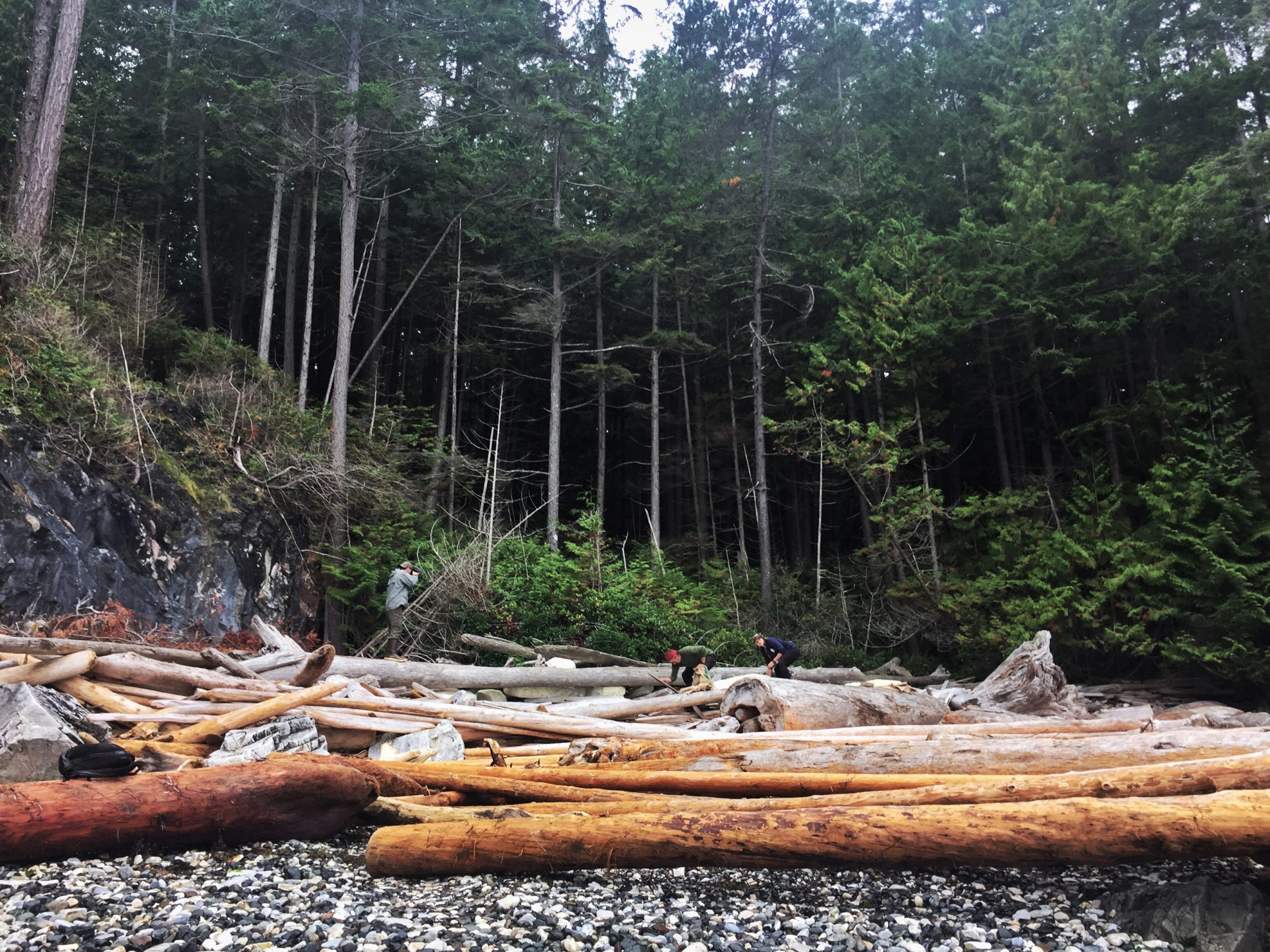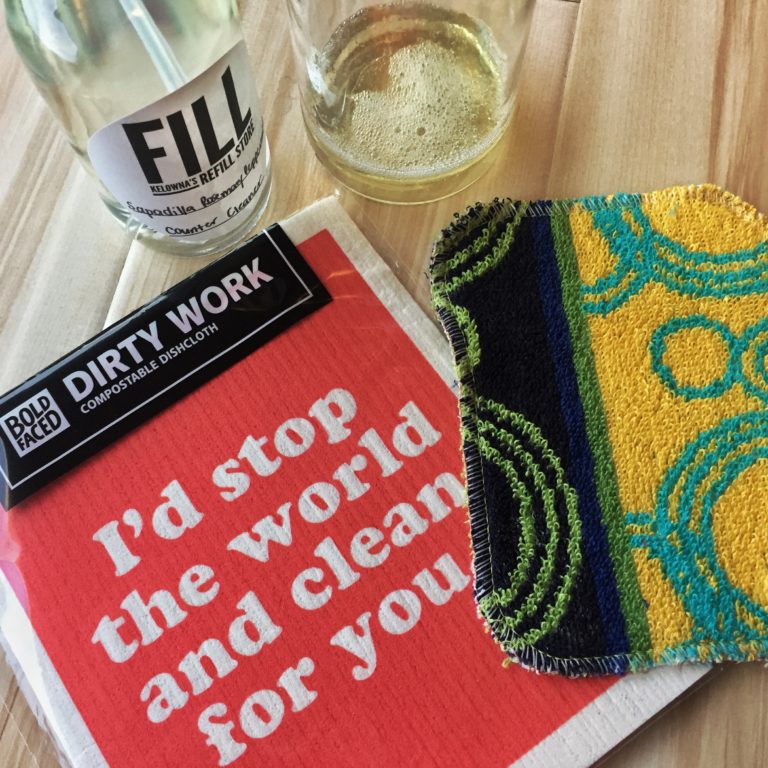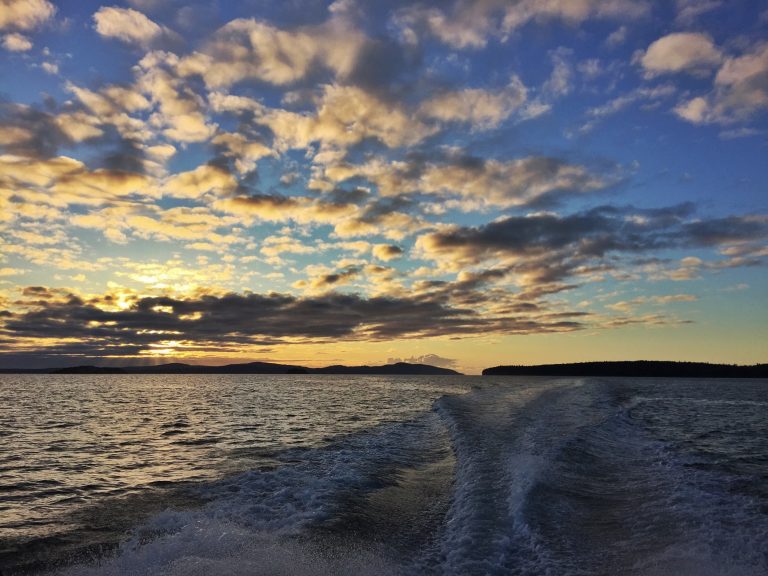The Return of Wake-Up Wednesday Wins featuring…Waste Wins!
It’s been a minute since we woke up to any wins on this blog! I won’t waste any time: let’s get back to it.
To recap the concept: each Wednesday, I’ll feature a set of “success stories” that feature good news only. Specifically, I’m targeting stories that give our oceans (and humanity) a boost. Waste wins and plastic pollution wins are sure to make an appearance. So too will local food wins, sustainable fashion, climate health, etc. It’s all connected, after all!
This week’s wins are all about waste. My favourite topic!
Waste Singled-Out
Today, the BC government announced that by the end of 2021, six hard-to-recycle disposable plastic items are set to be banned across the province. This is big news and of course, ruffled feathers everywhere. Greenpeace said it wasn’t enough. Alberta said it went too far. The plastic industry reps were all in a tizzy.
And I’m sitting over here just happy as a clam because come on, people!! We need all hands on deck! Of course this ban doesn’t go far enough. Of course it is going to upset everyone. But that doesn’t mean it’s not worth doing. As we all well know by this point, there is no silver bullet solution to plastic pollution. And, any solution that is introduced will take time to work itself out, because we’ve built a monstrosity with single-use disposable plastics and turning that ship around is a helluva job.
So, for now – I’m pleased with this news. Ban away!
Putting a Lid on Plastic Waste
A wonderful success story from my alma mater, University of Maine and one that is right up my alley. The mission behind Paramount Planet Products is to tackle the issue of waste in our oceans by creating plant-based replacements to the top 10 most-littered plastics. Using cellulose, they’ve started with coffee cup lids that look and feel like your standard coffee cup lid…but are entirely plastic-free. And, the sky’s the limit! The were recently awarded funding to take their R&D to the next level.
After I posted this story to my social channels, I had a few friends reach out to tell me that in Tofino (on Vancouver Island, BC) this style of coffee cup lid has become in their coffee shops. Well that folks, made my heart sing. 🙂
The best part? This outfit was started by a fellow marine biologist! Congrats on your funding, Ariadne Dimoula. Looking forward to seeing how this experiment goes!
Faith In Humanity Found…At the Dump?
One of my sometimes jobs is filling in for colleagues as a commercial waste monitor at my local landfill. The task is a big one: to patrol commercial haulers and ensure they’re not dumping banned materials into the landfill. The purpose of this work is to catch offenders and penalize them so they don’t do it again, with the intended goal that eventually, they’ll stop offending.
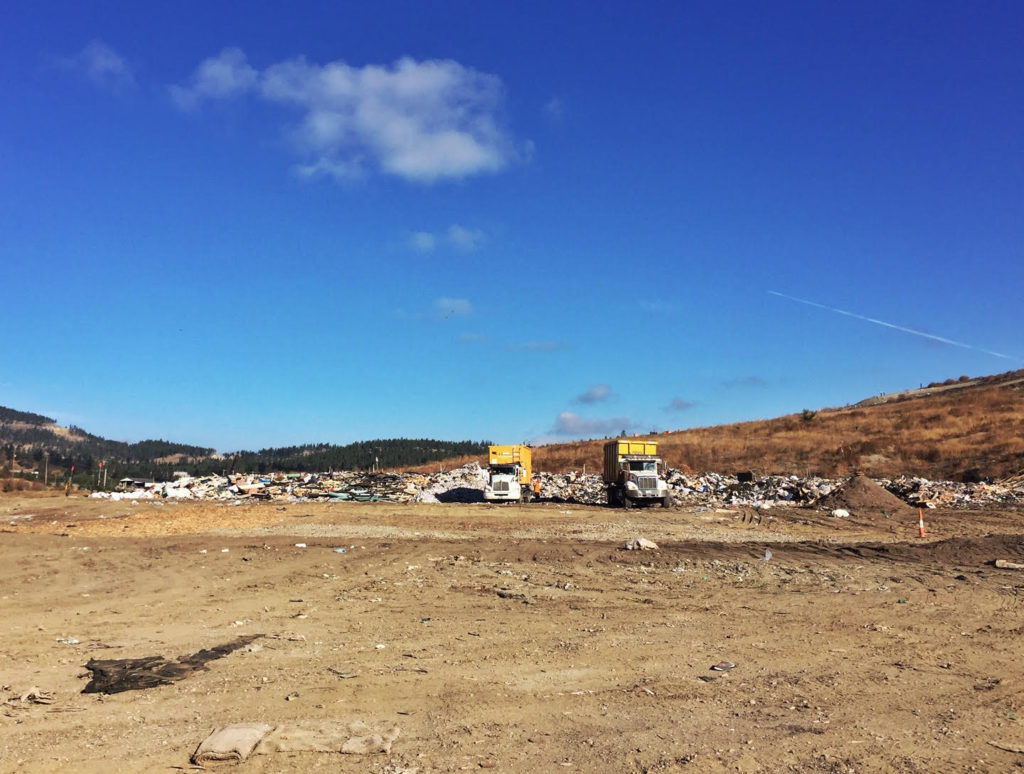
The haulers come in all shapes and sizes, from small pick-up trucks and trailers to the massive, “roll-off” style bins you’d typically find at construction sites. The waste also comes in all shapes and sizes and is endlessly fascinating to watch. It is astounding what we throw away and seeing it up close and personal – we monitor at the active face (aka on top of garbage mountain) – is a grim reminder that we’ve created a world where things are very much not circular…yet.
So it’s easy to see why your faith in humanity might falter at a place like the local landfill. It’s especially disheartening to watch loads come in full of contamination, like recyclables, clean wood, or metal pieces, that could have been diverted. But every so often, we’re quiet witnesses to some quiet acts of heroism. Today was one of those times.
Everyday Earth Heroes
As I sat in our dusty, landfill truck, binoculars firmly planted on my eyeballs, I watched in amazement as not one, but two separate haulers took the time to pull banned materials out of their load and put them back on their truck to take to the appropriate pile.
They could have just dumped the load and run. And, if I hadn’t been paying attention, or if I wasn’t there, they would have gotten away with it. But, it didn’t seem to matter that I was there, because they would have pulled this stuff out anyway. One hauler took the time to actually put a mattress (banned from our landfill) back in his truck! The other hauler spent 5 minutes pulling metal pieces from the pile he’d just dumped, putting them back into this truck to take to the metal pile.
These are small acts and, at the active face of a landfill, feel particularly tiny. But, they are significant and they do matter. Of course, the best case scenario would see these materials never ending up in the landfill bin in the first place. That is always the ideal situation. And, frankly, the active face of a landfill can be a dangerous place, so picking things out of a dumped load is generally not recommended. But these small acts give me hope: that it is possible for humans to do good…not just because they have to, but because they want to.
Talking Trash at Virtual Conferences
The Coast Waste Management Association (CWMA) is a membership association serving the solid waste industry in coastal British Columbia. Their member base is over 160 organizations and covers a broad spectrum of sectors (from private sector, local/regional gov, and non-profit organizations) and activities, including composting, recycling, EPR (Extended Producer Responsibility), and more.
This year, the CWMA held a virtual 2-day conference that was bursting at the seams with notable presenters, panel discussions, and more. I unfortunately missed the boat on registering in time but look forward to taking in some of the content after the event is over.
Stop, Collaborate & Listen
What caught my eye about this event was the involvement of so many different people and sectors. Pela Case made an appearance and so did author Adam Minter, author of “Junkyard Planet: Travels in the Billion Dollar Trash Trade.” Wal*Mart, Encorp Pacific, the Ocean Legacy Foundation (who we just worked with out on Texada Island!), Recycling Councils of multiple provinces all brought a representative…and so many more.
It’s exciting to see this kind of event take place and that so many diverse voices joined the conversation. There are a lot of complexities around waste and plastic pollution which means solutions have to be addressed from a multitude of angles. This is the kind of event that helps us get there.
Clean Up, Clean Up, Everybody Everywhere…
This is a two-fer! Two cleanup stories for you. The first:
In late September, I along with my partner Jan Vozenilek, joined a small group of dedicated ocean-loving people to clean up remote sections of Texada Island, BC. This group was The Ocean Legacy Foundation and it is their mission – or, part of their mission – to conduct remote beach cleanups in BC and South America. In addition to Cleanups, they also Educate their followers and community on the issues surrounding plastic pollution; create and push forward Policies that directly tackle oceanic plastic pollution; and create Infrastructure to process plastic debris collected during beach cleanups. Together, this spells EPIC and it is indeed an EPIC mission.
Their ultimate goal is to create a recycling facility for hard-to-recycle marine plastic pollution. As in, the type recovered from remote beach cleanups (that isn’t your average soda bottle). They are well on their way, and it was a privilege to spend a few days working along side them. More in my next post about that! 🙂
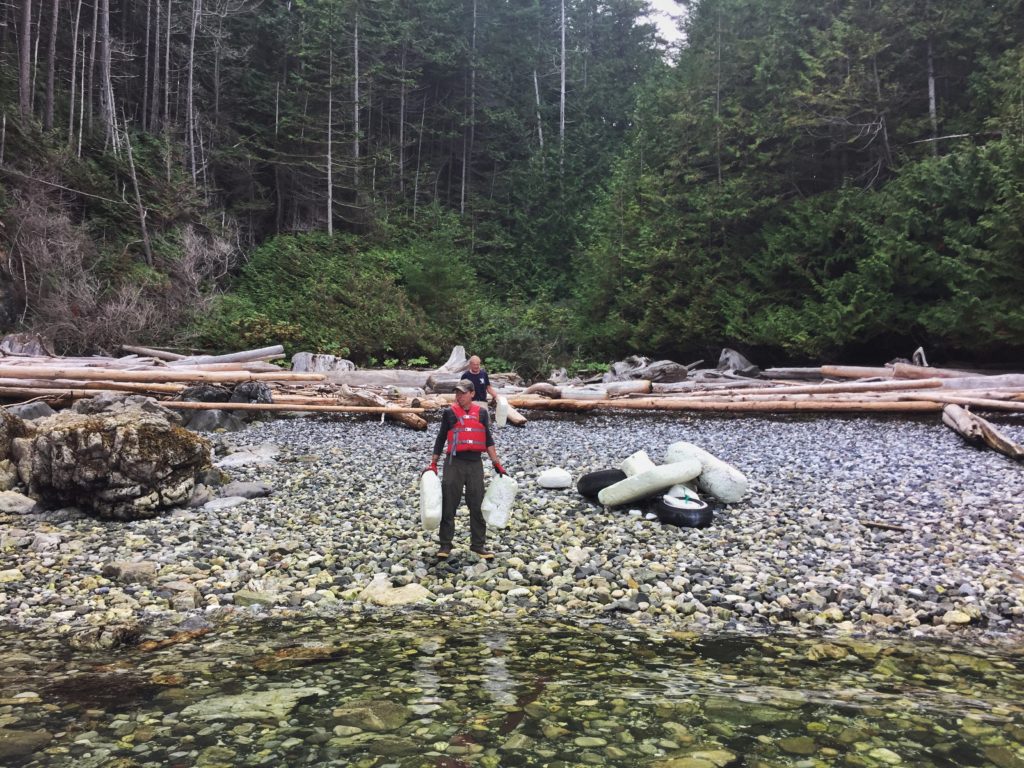
#BCCoastalCleanup
The second cleanup story is very similar! Recently, the BC provincial government awarded $3.5M to a group of small ship tourism operators, with help from the Wilderness Tourism Association of BC. COVID threw wrenches in just about everyone’s plans – particularly the tourism industry – and this group of operators was seeking a way to keep themselves afloat.
The Marine Debris Removal Initiative allowed these operators to re-hire their staff, with a quite intense goal. The mission: cleaning plastic waste off of remote beaches along BC’s central coast. (more information about the area and details here).
Not a Waste of Time
All told, this group cleaned up 127 metric tons of plastic waste from the shores of BC (see below for a visual from Outer Shores Expeditions). The data has yet to be fully analyzed but much of what was collected seems to have originated from the industrial fishing, industrial aquaculture, and marine industries at large. Expanded polystyrene foam, something I’ll be talking about in my next blog post, was ever-present and a dominant feature of these wild landscapes.
The images coming out of this initiative are breathtaking, humbling, and tragic. This is the important work that policy-making can now build upon. I’m really looking forward to watching this as it develops, to see where it will lead.
Final Thoughts
This weeks wins demonstrate the awesome and incredible power of people coming together. When that happens, innovation also happens. The work to clean beaches is sad and frustrating and hard, but the outcomes are inspiring. Conferences bring diverse voices to the table, creating the conditions for new ideas to blossom.
And above all, these week’s stories show that there are everyday earth heroes everywhere…even at the landfill. 🙂

